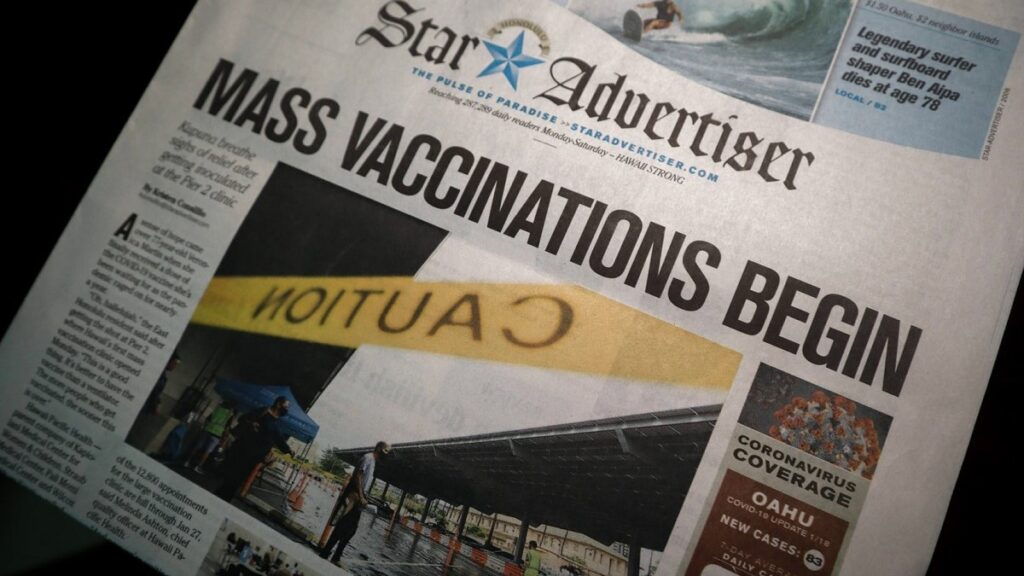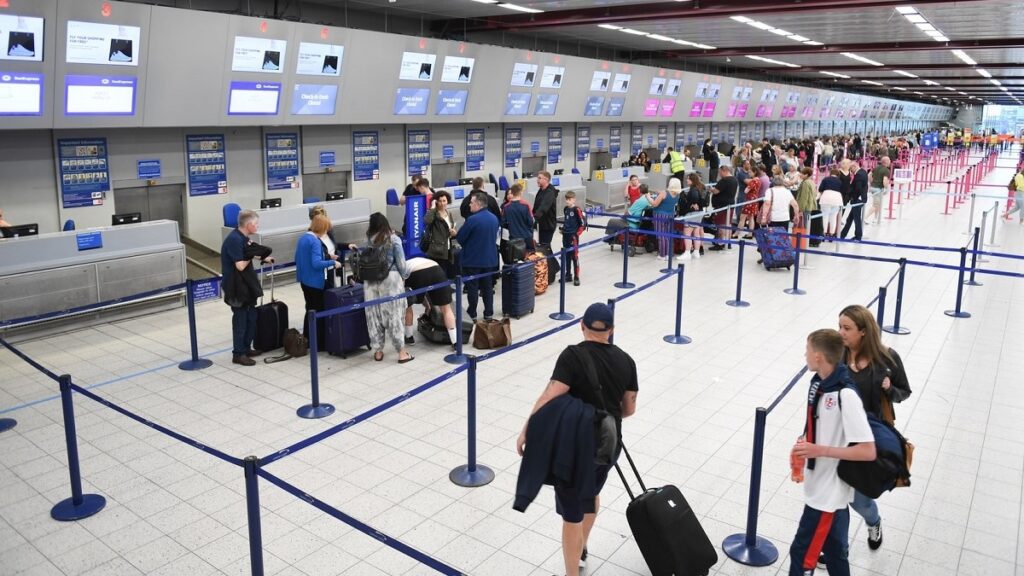As it stands, there are many rather apocalyptic predictions on the ways the world will change when the COVID-19 pandemic subsides. In most countries, people currently face various restrictions to their everyday lives; and international travel has almost ground to a halt. In this region, short-term international travel is all but infeasible, as even short-term roundtrip journeys turn into arduous affairs, which require individuals to serve a quarantine period at one or both ends of the trip.
The International Air Transport Association (IATA) recently announced that air travel volume for the year 2020 was just one-third of the previous year. This year’s forecast looks only marginally better – as most recent projections indicate that this year’s travel volume will be half of what it was in 2019, with recovery to pre-pandemic not expected till 2023.
There is however a glimmer of hope as current IATA projections for the fourth quarter of this year put global air travel volumes at as much as 80%, compared to the same quarter in 2019. This optimism is mostly driven by the successful development and deployment of multiple vaccines and the expectation of reaching considerable levels of immunization, which would allow removing some, if not most, of the current quarantine restrictions. And as long as quarantine measures remain in place, no sensible recovery of the travel industry would be possible.
Right now, there is no clear-cut answer to the question of how (or whether) travel will change, as the recovery of the travel industry resumes. There are, however, several possible scenarios for the future of travel. In our predictions, we must also distinguish between short and long-term horizons.
The COVID-19 pandemic will be here a while
One thing is clear at this time – COVID-19 is here to stay for some time. The pandemic may end in a few years – perhaps in about five to seven years hopefully – but this virus will continue circulating. Vaccines will limit its spread and have the strong potential to reduce the virus’ mortality rate. But, we are still very far from the day when zero new COVID-19 cases are reported in the world.
The eradication of smallpox took over 200 years since the development of the first vaccine against this illness, while polio still has not yet been fully eliminated despite a worldwide concerted effort since 1988, it is still reliant on two vaccines and a set of public health policies. The task of eradicating COVID-19 is made more complicated by the fact that it appears to mutate more rapidly than other similar viruses – and at the current rate, every nation may even end up having its own variant by the end of the pandemic.
READ MORE: We explore if the COVID-19 vaccine will help reopen global travel
The focus then shifts to the extent to which COVID-19 prevention and control measures will be necessary in the short- and long-run in the travel sector. One important concern is the way the public health policies have been implemented so far, and the continuing lack of international coordination and cooperation on these COVID-19 control measures.
As vaccination rates increase throughout the world, some countries are drafting reopening plans with clear timelines, while others are taking a more cautious approach and refusing to commit to any dates for a further removal of restrictions.
In the short-run, the recovery of the travel industry will prove to be gradual and involve the imposition of considerable prevention and control measures, some of which we are already seeing. For instance, Thailand has opened its borders to “long-term” tourists who are willing to spend at least 90 days in the country. Such visitors, upon obtaining a special long-term tourist visa, will be required to quarantine before being allowed into the community. Such a scheme would likely only bring back a miniscule fraction of the pre-pandemic tourist traffic.
The key to travel recovery is the resumption of short-term trips without the need for quarantine. Allowing such travel in the current situation (even with the PCR test requirement) is not a feasible option, as examples of some countries that did so (e.g. Turkey and the UAE) have demonstrated. In Singapore, there have been cases of business travellers on controlled itineraries (arriving without quarantine requirement) who tested negative upon arrival coming up with positive test results a couple of days later.

In the short-term, recovery will likely start with relaxing travel restrictions for vaccinated individuals. Some countries, including Singapore, are wary of doing this until there is clear evidence that vaccinated people cannot carry and transmit the virus. Encounters between vaccinated travellers and unvaccinated locals would also have to be restricted, as a safety measure. Moving workers in the hospitality and foodservice industry in the host country to the front of the vaccination queue (but definitely not in front of the otherwise vulnerable individuals) would also help push safe-reopening measures.
The airline industry, working through IATA, has created the IATA Travel Pass initiative, aimed at informing passengers about the cumbersome network of COVID-19 related travel restrictions, and helping them verify their tests and vaccinations against those restrictions. Singapore Airlines is one of the carriers trialling this initiative. Anyone who receives their COVID-19 vaccine should treat their vaccination records in the same way as they treat their passports, if they have any international travel plans in the next five years or so.
Can we create new travel protocols?


Should I assume that I will not be able to travel until I have received the COVID-19 vaccine? Well, this depends on where you are and how countries decide to reopen. Vaccinations not only protect the vaccinated individuals, but they also stem the spread of the virus. We may see some countries – probably not in this part of the world – deciding to open their borders to everyone as soon as a sufficient share of their population has been vaccinated.
Ideally, governments when developing their policies should understand that some people may be unable to receive the COVID-19 vaccine due to their health conditions, and create travel protocols for those individuals that will not impose an undue hardship on them.
Naturally, on board aircrafts and in hotels, travellers can expect to see the now familiar enhanced safety measures. These, along with the requirement to wear masks in public, will remain in place in some countries for some time after the pandemic has ended. I estimate we would need to continue wearing masks on board aircraft for the next five years, at least. Also, contactless technological solutions will likely be implemented at airports, hotels, souvenir shops, and key tourist attractions. Most of those solutions, along with potential contact tracing systems implemented in various countries, will be linked to mobile apps, requiring the use of data, possibly incurring additional roaming charges.
Will we see a return to the pre-pandemic “travel protocol” eventually? There is unfortunately no certain answer to this as yet. New variants of the virus may potentially continue to appear. Experts would then also need to understand if existing vaccines work against these new variants. Until we have obtained a more thorough understanding of how the virus mutates (and vaccines’ efficacy against such mutations), control measures will be necessary.
Vaccination requirements for travel may remain in place for at least the next decade in some countries – based on the policies that have been implemented since the start of the pandemic, Singapore may well be in the list of those countries. Contactless technology will be in place for this time, as it has rendered previous technology obsolete.
In conclusion, the availability of effective vaccines gives us strong hope for the reopening of the travel industry once certain levels of vaccinations have been reached – which for some countries may be a matter of months. The main changes travellers will see in the near future will be the need to carry an additional passport, your COVID-19 vaccination record, wearing masks on board the airplane, and the need to navigate new contactless devices and apps.
Be prepared to incur additional roaming charges in the “new normal”. In this part of the world, these new restrictions will likely last for the next decade. However, in other parts of the world – notably Europe and North America – we might see the return to the pre-pandemic travel routine much sooner than that.
Contributed by Associate Professor Volodymyr Bilotkach, Air Transport Management, Singapore Institute of Technology
Give us your opinion on whether you believe we will return back to normal in the next few years or whether we will have to create a new travel protocols to fit the “new normal”. Drop us a message or leave a comment below.

